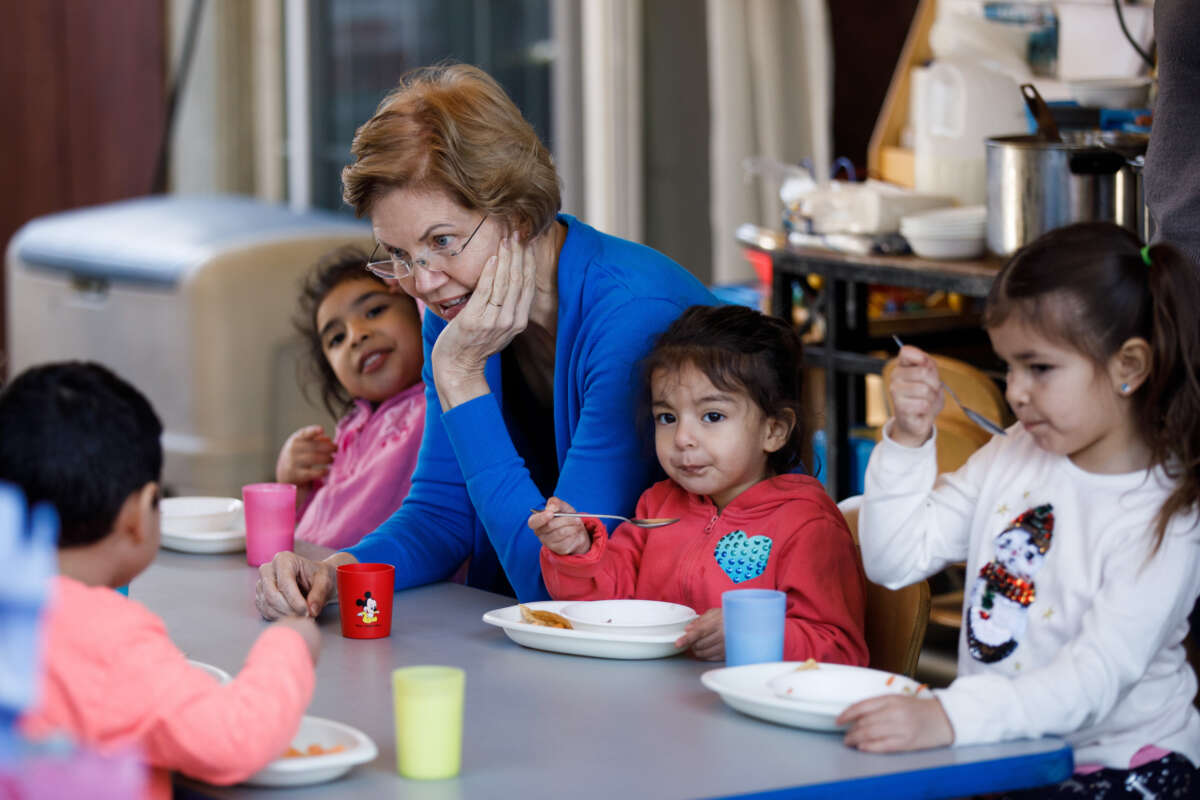The vast majority of U.S. voters across party lines are concerned about soaring child care costs and support majorly expanding child care access, new polling finds, demonstrating the need for lawmakers to address the growing child care crisis across the country.
According to polling released Thursday by Data for Progress, 83 percent of voters are either “very,” “somewhat” or “a little” concerned about child care costs, including 87 percent of Democrats and 84 percent of Republicans, as well as 90 percent of parents polled.
An overwhelming majority of the poll’s 1,247 respondents also expressed support for a bill introduced by Sen. Elizabeth Warren (D-Massachusetts) earlier this year aimed at massively expanding access to child care. The bill would create a nationwide network of child care and early learning centers to ensure universal access, while also capping child care costs at $10 a day for half of the country and capping costs at 7 percent of income for higher income families.
The proposal, which was briefly described to respondents, has 79 percent support, according to the polling, with 42 percent saying that they “strongly” support the bill. This includes nearly 90 percent of Democrats, 77 percent of independents and 70 percent of Republicans. Eighty-seven percent of parents also said they support the proposal.
Child care costs have been skyrocketing in the U.S. for years now. During the pandemic, the average cost of child care rose even higher; last year, a LendingTree report found that child care costs climbed by 41 percent on average for child care centers during the pandemic, with families spending about $14,000 annually, up from about $10,000 a year pre-COVID.
For families with children younger than five years old, this was an average of between 17 and 20 percent of average yearly wages. This is far higher than the U.S. Department of Health and Human Services’s definition of child care affordability, which is 7 percent of family income.
For years, child care costs have risen faster than inflation, while workers’ wages have remained stagnant for decades or have, in some recent years, been cut in real dollars. These costs hit lower income families the hardest; even though some low-income families can access assistance, families must meet strict standards in order to qualify, and what assistance does exist has not been sufficient to help families and children, with millions of children living in poverty in the U.S.
Experts say that the child care industry is broken, and with little energy to fix the problem in Congress, the crisis will only continue to get worse.
High costs are due in part to a child care shortage across the country, with thousands of providers shutting down during the pandemic, low public funding for child care and an increasingly underpaid and overworked workforce; according to the Bureau of Labor Statistics, the median annual wage for child care workers is $13.71 an hour, or an annual wage of about $28,500. This is lower than the national living wage for an individual without children, and is less than half of the living wage for a single parent, according to data from the Massachusetts Institute of Technology.
Join us in defending the truth before it’s too late
The future of independent journalism is uncertain, and the consequences of losing it are too grave to ignore. To ensure Truthout remains safe, strong, and free, we need to raise $24,000 by the end of today. Every dollar raised goes directly toward the costs of producing news you can trust.
Please give what you can — because by supporting us with a tax-deductible donation, you’re not just preserving a source of news, you’re helping to safeguard what’s left of our democracy.
